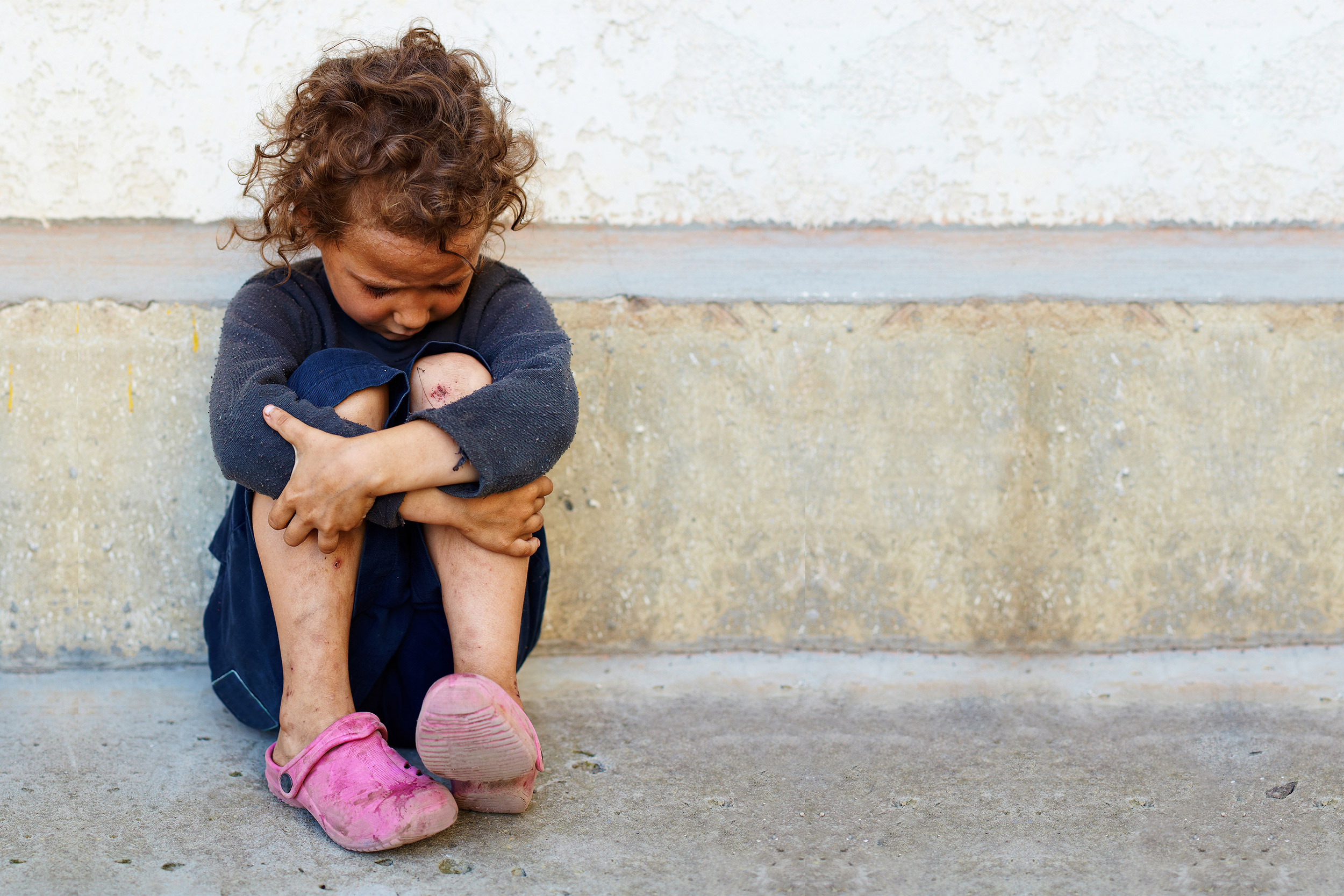
iStock
Putting children first legally, politically, economically
Law professor says nation disregards their rights, fails to protect them, create conditions so they can thrive
In his new book, “A Minor Revolution: How Prioritizing Kids Benefits Us All,” Adam Benforado, J.D.’05, professor of law at Drexel University, explains how the country is failing children politically, legally, and economically, and offers a roadmap for improvement. The Gazette interviewed Benforado about the extent of the disregard for children’s rights in the U.S. and the ways in which it can do better not only for children’s sake, but for the nation’s. This interview has been edited and condensed for length and clarity.
Q&A
Adam Benforado
GAZETTE: Your book says that the country is failing children? How so?
BENFORADO: The way I’ve organized this book is in terms of a child’s normal development. One of the most important things to set a person up for health and success in life is strong attachment to primary caregivers in the child’s first years. But what do we do in the United States? How do we support attachment? Well, we largely don’t. We are one of the only countries that does not provide guaranteed, paid family leave for new parents. Many mothers and fathers go back to work after a few days, which interferes in the child’s development, but we interfere with it in countless other ways. We’ve created a mass incarceration system that severs the bonds between children and their parents when they are taken away and thrown in jail or prison. We separate children from their parents who have left to come to the United States to provide their children with a better life. We callously use our child welfare system in ways that are harmful to children. When, for example, a welfare worker comes in and notices there’s no food in the fridge and there’s peeling lead paint, instead of giving the parents food and helping them have secure, stable, safe housing, we take the kids away.
In early childhood, we fail to invest in children. The American dream today is a myth because where you start is often exactly where you’re going to finish. We let poor kids be poor. And we, in many ways, subsidize the wealth of wealthy kids. As we move forward in the lifespan, you see the same neglect.
“Over the course of the 20th century, we gave up on the notion of children’s welfare as our collective responsibility. Instead, we put all our eggs into parents’ rights.”
GAZETTE: What are children’s rights and how have they evolved over the years?
BENFORADO: Here’s the funny thing: In the United States, children don’t have many formal rights. At the turn of the 20th century, coming out of the horrors of the Industrial Revolution, around the United States we had people coming together to address the maltreatment of children. Children were coming out of the coal mines with black lungs, were in workhouses instead of being in schools, and they were starving on the streets.
As a result of this progressive child-saver movement, we had a wealth of reforms in child labor, in food and drug safety, in making good mandatory schools with good facilities, and we had the adoption of a juvenile justice system. By 1912, President Taft created the Children’s Bureau as the first federal agency focused on the wellness of the whole child. What we see over the course of the 20th century is that we didn’t seize the moment, in part, because these early progressives were focused on protecting certain types of children, mostly white immigrants living in big cities, as opposed to all children in America. By the ’60s and ’70s, the reaction in the U.S. was to tear things down and replace them with this notion that the role of raising up the next generation ought to be left solely to parents. At the same time, the rest of the world was rallying around the idea of children’s rights, but Americans were going in the other direction.
GAZETTE: What does it say about U.S. priorities that it is the only U.N. member state that has not ratified the 1989 Convention on the Rights of the Child?
BENFORADO: Over the course of the 20th century, we gave up on the notion of children’s welfare as our collective responsibility. Instead, we put all our eggs into parents’ rights. This was facilitated by the Supreme Court over a series of important cases, which said that parents are the directors of their children’s destinies; they are the ones who decide on matters of healthcare, education, familial relationships, etc. As Americans, we came to accept that it’s all on parents’ shoulders, and therefore, parents have great power; no one is going to second-guess you, and the government isn’t going to come and check up on you as you homeschool your kid or you decide your children’s vaccine schedule.

“The American dream today is a myth because where you start is often exactly where you’re going to finish,” said Adam Benforado. “We let poor kids be poor.”
Photo by Joe Craig
GAZETTE: In which areas would you say there has been a stagnation of children’s rights?
BENFORADO: Many people say children are better off now than when they were living in 1900. Around the turn of the century, maybe it was half of children who were living in poverty, and today, maybe it’s 15 percent. But children are still legally picking tobacco in fields in North Carolina. And they’re the most vulnerable kids: migrant children who are working for the same reasons that kids worked in 1900 — because of economic necessity. We have not changed things as much as it would appear. Look at juvenile justice: We are still throwing young kids into prisons with adults, just like we did before the juvenile justice system was adopted. Look at child mortality: We’ve fallen behind our industrialized peers because we have not acted on things like traffic safety or gun control. Guns are the leading cause of death among children in this country.
GAZETTE: Your book proposes that the country should put children first, but how can that lofty goal be accomplished?
BENFORADO: The simple elevator pitch is that we need to put children first in everything that we do. We need to take the criminal justice system and rebuild it with the idea that whatever we do will impact children and their futures. If we adopted such a mindset, we would not lock up the parents of young children; we would look to other tools, like monitoring or intervening in people’s lives to treat drug problems or economic issues associated with criminality.
More broadly, I advocate for installing government child-impact assessment when deciding on new regulations, policies, and laws. The idea would be not only to look at bills that implicate children explicitly, but also to assess those that seem to have nothing to do with children at all — for example, a state bill that bans cities from raising the minimum wage on their own. Such a bill is going to hit poor families with young children the most. Children will die of preventative healthcare issues if you reduce the income of poor families in those cities.
I also suggest that such a set of processes could be overseen by a new federal agency. I advocate for the creation of a standalone Cabinet-level agency focused on the whole child.
I also think the court system should be a stronger voice for children’s interests. Children have no say in the executive or the legislative branches; they cannot vote, nor hold office, and the court system was created to protect the minority. So, I argue for abandoning originalism and embracing an approach to statutory interpretation grounded in maximizing children’s interests.
Now, the last thing that I would mention in terms of big, bold changes related to child prioritization is the role of business as well. I argue in favor of replacing shareholder primacy as a norm in corporate law with child primacy. The welfare of children should be a core concern for corporate America because the most powerful entities in society increasingly are not state actors, but corporations, and if those entities are indifferent to children, the potential for disastrous results for children grow exponentially.




